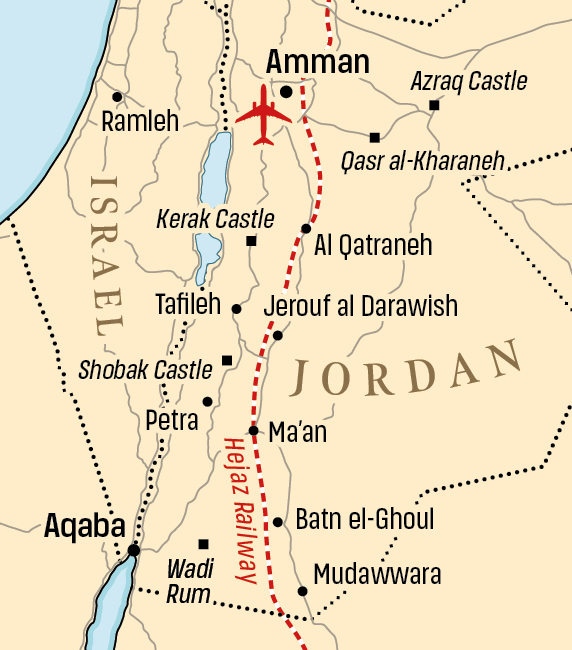The Royal Family of Jordan aspires for the country to become an international hub for filmmaking. The question that arises is whether the ambition is to compete against the likes of Hollywood. Recently, during the Amman Film Festival, the national administration launched an initiative aimed at attracting influential filmmakers from around the world. This program involves incentivizing directors through financial returns to highlight the iconic landscapes and diverse cultural heritage of Jordan. The Royal Family’s stamp of approval on this initiative affirms the significance of cinema in their vision for Jordan’s cultural transformation.
For the Royals, the film industry is not a mere afterthought; it is a key component of their broader developmental agenda for the country. The intention is to leverage existing resources and experiences in order to fortify the national cinema scene. Whether the achievement is representing Jordanian cinema on global platforms such as the Oscars or shaping a platform conducive to the independent narrative of local storytellers, the goal is clear: cinema is integral to Jordan’s socio-cultural vision.
This aspiration does not seem far-fetched since Jordan is not unfamiliar with large-scale film productions. Over the years, it has been a chosen destination for several high-profile film projects, boasting a roll call of acclaimed titles such as ‘Dune’, ‘The Martian’, and the ‘Star Wars’ series. These ventures have irrevocably placed Jordan on the global map as a film production site of international regard.
The impact of these blockbuster films stretches beyond their theatrical lifespan. After the film crews depart, resources are invested in the local community, particularly in education. Local guides, for instance, are given opportunities to learn English, a skill that equips them to fully benefit from the surge in tourism triggered by these high-profile movie releases.
Notably, the Royal Family’s connection to cinema is deeply personal, tracing back to a romantic story that unfolded on a film set. King Hussein, the father of the current King, fell in love with his mother, then known as Toni Gardiner, during the production of ‘Lawrence of Arabia.’ The film was being shot in Jordan back in 1961.
At the age of 19, Gardiner had accompanied her father to Jordan and secured a secretarial job on the film’s set. Intriguingly, this set was frequented by the young King Hussein. Their love story began when both attended a fancy dress party.
In 1961, King Hussein and Toni Gardiner formalized their romance into a marriage. The following year, they welcomed their first child, who would eventually become the present King of Jordan. Their family further expanded with the arrival of three more children: Faisal, Aisha, and Zein.
Unfortunately, the fairy tale romance of King Hussein and Gardiner couldn’t stand the test of time. In December 1971, their marriage ended in a divorce. Nonetheless, their union left an indelible mark in the Fordanian legacy with the birth of their son, now the reigning King of Jordan.
Despite the dissolution of their marriage, there remained a British connection in the Jordanian royalty. Toni Gardiner, the British princess, was present at her son’s wedding to Queen Rania. Despite the years and circumstances, she continues to feature prominently in the lives of her grandchildren.
The intertwined relationship between the Jordanian royal family and the world of cinema, both personal and strategic, forms a fascinating narrative. This connection could be seen as a driving force behind the royal family’s endeavour to maximize Jordan’s cinematic potential.
It remains to be seen how the newly launched initiative will invigorate the national cinema scene and reinforce Jordan’s position as a contested cinematic destination internationally. With the government’s scheme, not only are auteurs around the globe invited to share Jordan’s story, but the locals are also encouraged to partake and benefit as well.
This move is an optimistic step towards nurturing a flourishing cinema culture in Jordan. It’s an effort to galvanize the nation’s cultural and economic landscape, intertwined with the rich history and heritage of the land.
Thus, the royal family’s vision for cinema not only enhances the cultural exchange between Jordan and the world but also promotes socio-economic development. It is a holistic approach that positions the medium of film as a vehicle for advancing the wider social and economic objectives of the nation.
In summary, the Royal Family’s concerted effort bank on Jordan’s potential as a cinematic metropolis signifies a strategic approach to cultural diplomacy. This vision stands as a testament of their dedication towards the preservation and promotion of their heritage, while simultaneously fostering a robust film industry.
One cannot discount the role of the Royal Family’s personal connection with cinema in shaping their resolve. The pivotal role of the ‘Lawrence of Arabia’ film set in King Hussein’s love story has undoubtedly imbued the realm of cinema with a significant sentimental value in the eyes of the Jordanian Royals. Only time will tell how this personal connection and strategic vision will shape the future of Jordanian cinema and the country’s standing in the global film industry.

